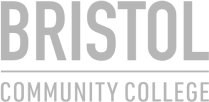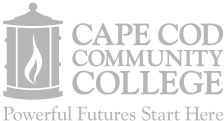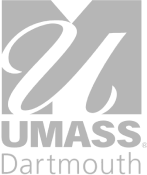PRACTICE TIERS CONSORTIUM KSAs
 Foundational
Foundational
Knowledge
– Recognizing the context and focus of ARE initiatives and as related to the strategic plans of each of the 6 colleges across CONNECT in relation to the broad ARE goals of the Consortium as whole
Skills
– Identifying dissonance and discrepancy in understandings of organizational ARE strategic direction as opportunities for deeper Consortium inquiry into ARE understandings framed by state of MA HE goals and initiatives
Actions
– Being deliberate and intentional about CONNECT ARE efforts as aligned with state strategic plan initiatives
 Intermediate
Intermediate
Knowledge
– Observing and perceiving the context and focus of statewide ARE initiatives, Consortium sense-making and prioritizing ARE actions based on understanding the reality and impact of ARE in HE and how it is reflected across strategic plans as well as CONSORTIUM goals
Skills
– Beyond awareness, staff across each campus recognizing ARE impact in the immediate work environment and ways ARE shows up in campus, Consortium, and state HE strategic plan
Actions
– Working to collectively identify ways to capture progress and pursue improved outcomes to meet as many learners’ needs as possible while remaining aligned with desirable inter, intra, and statewide institutional strategic plan initiatives
 Advanced
Advanced
Knowledge
– Having a strong and concrete understanding of what ARE looks like at the Consortium level
Skills
– Knowing how to use systems, processes, and tools in place to track progress, creating a continuous examination of the data for evidence of what is or is not working for all learners across institutions in CONNECT, including the identification of ARE related patterns and trends campus-wide
Actions
– Being focused on ensuring all learners have equitable access to support and opportunities to learn
INSTRUCTIONAL STAFF KSAs
 Foundational
Foundational
Knowledge
– Recognizing the context and focus of ARE initiatives centered on teaching and learning addressing shared Consortium-wide racial inequities while also taking stock of current knowledge and understanding of ARE as related to collective CONNECT goals
Skills
– Asking common critical questions shared by all colleges in CONNECT related to ARE, pedagogy, curriculum, and instructional practices/ policies
Actions
– Recognizing need to take a closer look at specific ARE matters impacting teaching and learning across CONNECT, including unintentional bias, microaggressions, and equity-minded incidents in the classroom
 Intermediate
Intermediate
Knowledge
– Consideration of pedagogical and curricular CONNECT-wide campus initiatives, practices, and professional development (e.g., culturally appropriate, relevant, affirming) based on evidence of best ARE practices, including strategies identified in individual strategic plans and Consortium goals
Skills
– Assessing capability and capacity for CONNECT-wide instructional improvement and identifying external expertise if needed, including additional professional development/ training
Actions
– Identifying areas for CONNECT-wide change and areas that are effective and don’t require change that are aligned with desirable strategic plan initiatives and Consortium goals
 Advanced
Advanced
Knowledge
– Being clear about what needs to change and what doesn’t in order to ARE across the Consortium
Skills
– Continuous examination of the data for evidence of what is or is not working for all learners
– Identifying where we have the capability and capacity to improve in order to achieve racial equity across the Consortium
Actions
– Clearly identifying and communicating the actions we need to take in pursuit of racial equity and why; can utilize established feedback channels to create an established record of suggestions, concerns, and noted progress
MANAGERS/LEADERS KSAs
 Foundational
Foundational
Knowledge
– Noticing and understanding the reality and impact of ARE on the Consortium while recognizing context and focus of ARE initiatives, current knowledge and understanding of ARE, as key elements of individual strategic plans and CONNECT goals
Skills
– Seeking different perspectives on ARE issues in HE while maintaining a learner focus and being open to newly emerging CONNECT-wide information regarding ARE in community colleges and universities broadly in the US
Actions
– Knowing when to be deliberate and intentional about CONNECT-wide ARE efforts in alignment to strategic planning and the Consortium goals- with willingness to change/adjust/ augment the Consortium plans if need be
 Intermediate
Intermediate
Knowledge
– Evaluating adequacy of findings and addressing different interpretations of data, including CONNECT-wide data related to the impacts of implicit bias and microaggressions as structural/ systemic barriers and obstacles in the Consortium
Skills
– Scrutinizing extant, formative, and summative, CONNECT-wide comprehensive data sets with an open mind; inclusive of both qualitative/ quantitative data
Actions
– In alignment to strategic planning and goals, prioritizing resources to achieve equitable outcomes, including allocating resources to address CONNECT-wide ARE issues identified and considering magnitude of the desired change for the Consortium
 Advanced
Advanced
Knowledge
– Having a strong and concrete understanding of what ARE looks like for the consortium, and being clear on what problem or issue the Consortium is trying to strategically address in pursuit of that goal
Skills
– Continuous examination of the data for evidence of what is or is not working for all learners in the Consortium, and subsequently identifying and acquiring the required support and resources needed to effectively help all CONNECT institutions progress in their pursuit of ARE
Actions
– Being focused on ensuring all learners across each campus have equitable/ comparable access to support and opportunities to learn, and that all learners are consistently making progress towards ARE





